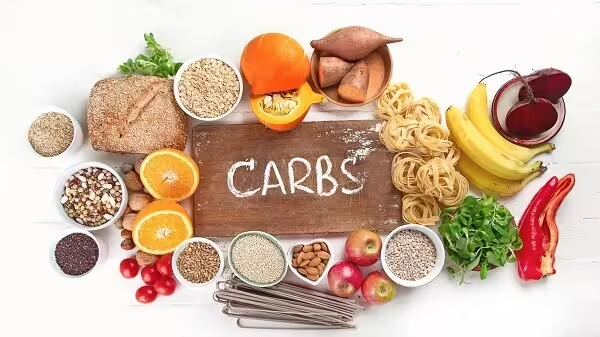Carbs: The Astonishing Truth Behind Their Friendship or Foe!

Ah, carbs—the ultimate love-hate relationship in the world of nutrition. One minute, they’re your best friend, like when you’re cozying up to a warm bowl of pasta. The next, they’re your worst enemy, blamed for every extra pound you’ve gained since the holidays. But are carbs really that bad, or have they just been misunderstood? Let’s dig into the truth behind this nutritional villain, and figure out if carbs are the true foe or just caught up in a bad PR campaign.
The Rise and Fall of Carbs
There was a time, not so long ago, when carbs were the king of the food world. Sandwiches, spaghetti, and even cereal were considered wholesome, filling meals. We carbo-loaded before sports games, indulged in bread baskets without shame, and lived in a world where no one gave a second thought to ordering a side of fries and mashed potatoes.
But then, something happened. Suddenly, carbs were the bad guy, and every diet guru and fitness influencer out there started giving them the cold shoulder. Low-carb diets like Atkins, keto, and Paleo became the new cool kids in the cafeteria, and poor carbs were left sitting alone, abandoned with nothing but a stale baguette.
Are All Carbs Created Equal?
Before we totally kick carbs to the curb, it’s important to understand that not all carbs are created equal. You see, carbs can be broken down into two categories: simple carbs and complex carbs.
- Simple Carbs: These are the sneaky little devils that cause quick spikes in your blood sugar and leave you feeling hungry an hour later. Think of them as the fast-food of the carb world: delicious in the moment, but not exactly nutritious. Examples include white bread, pastries, sugary cereals, and anything that tastes too good to be true.
- Complex Carbs: Now these are the good guys—whole grains, legumes, fruits, and vegetables. Complex carbs are like the nice guy you friend-zoned in high school, reliable and there for the long haul. They provide steady energy and keep you fuller for longer, but they might not always be as exciting as their simple carb cousins.
So, before you swear off carbs altogether, it’s worth considering that what type of carbs you’re eating might be more important than how many you’re eating.
The Low-Carb Craze: Are We Overreacting?
The low-carb trend hit hard, and suddenly, everyone was on a quest to banish carbs from their lives. Bread was demonized, pasta became taboo, and you couldn’t walk into a café without someone talking about their keto progress (or lack thereof). But here’s the thing: your body actually needs carbs. Yes, even that donut you’re eyeing from across the room.
Carbs are your body’s preferred source of energy. They fuel your brain, muscles, and other vital organs. When you go low-carb, your body has to find alternative sources of fuel, like fat and protein, which can work, but isn’t as efficient. And let’s be real: there’s only so much cauliflower pizza crust and zucchini noodles a person can handle before they snap and head straight for the bread aisle.
Why Carbs Get a Bad Rap
Carbs have been unfairly labeled as fattening, but the real issue isn’t carbs themselves—it’s overconsumption. We live in a world where portion sizes have spiraled out of control, and often, it’s not the carbs that are the problem, but the fact that we’re eating way too much of them.
Remember that time you ate an entire family-sized bag of chips during a Netflix binge? Yeah, that’s not carbs’ fault—that’s just a bad decision. Moderation is key. You can have your carbs and eat them too, just maybe not all at once.
How to Make Peace with Carbs
Now that we’ve cleared the air, how do we go about making peace with carbs? Here’s a roadmap for a healthier, happier relationship with your beloved (or previously scorned) carbs:
- Embrace Whole Grains: Opt for complex carbs like quinoa, brown rice, whole-wheat pasta, and oats. These will give you that slow, steady energy you need to power through your day without crashing.
- Portion Control: Sure, it’s tempting to dive headfirst into a giant plate of spaghetti, but try to keep portion sizes reasonable. Remember, moderation is the name of the game. Yes, you can still enjoy carbs, just maybe not a mountain of them.
- Balance Your Plate: Don’t make your entire meal about carbs. Pair your pasta with some lean protein and plenty of veggies. This keeps your meal balanced and prevents you from face-planting into a carb coma.
- Don’t Fear Fruit: Fruit contains natural sugars, but it also packs a punch of fiber, vitamins, and antioxidants. It’s one of the healthiest ways to satisfy your sweet tooth without going overboard.
- Beware of Hidden Carbs: Processed foods are notorious for sneaking in sugar and refined carbs where you least expect it. Read labels and try to stick to whole, minimally processed foods when possible.
Carbs and Exercise: The Ultimate Power Couple
Let’s not forget, if you’re working out, carbs are your best friend. Carbs give you the energy to crush your workout and recover afterward. That’s why athletes often load up on carbs before big events. So, if you’re hitting the gym regularly, carbs aren’t just allowed—they’re encouraged!
You don’t want to be the person who passes out halfway through a workout because you’re running on lettuce and boiled eggs. Fuel your body right, and carbs can actually help you build muscle and burn fat. Talk about a plot twist!
Carbs—Not the Enemy, Just Misunderstood
At the end of the day, carbs aren’t the evil villains we’ve made them out to be. They’re not going to sabotage your diet or make your pants feel tighter overnight. It’s all about balance and making smarter carb choices. Instead of cutting them out completely, focus on eating the right kinds of carbs in the right amounts.
So, next time you’re at a restaurant and the breadbasket comes around, go ahead—take a piece. After all, life is too short to live without carbs. Just don’t blame them when your jeans feel a little snug. That’s on you, buddy.



